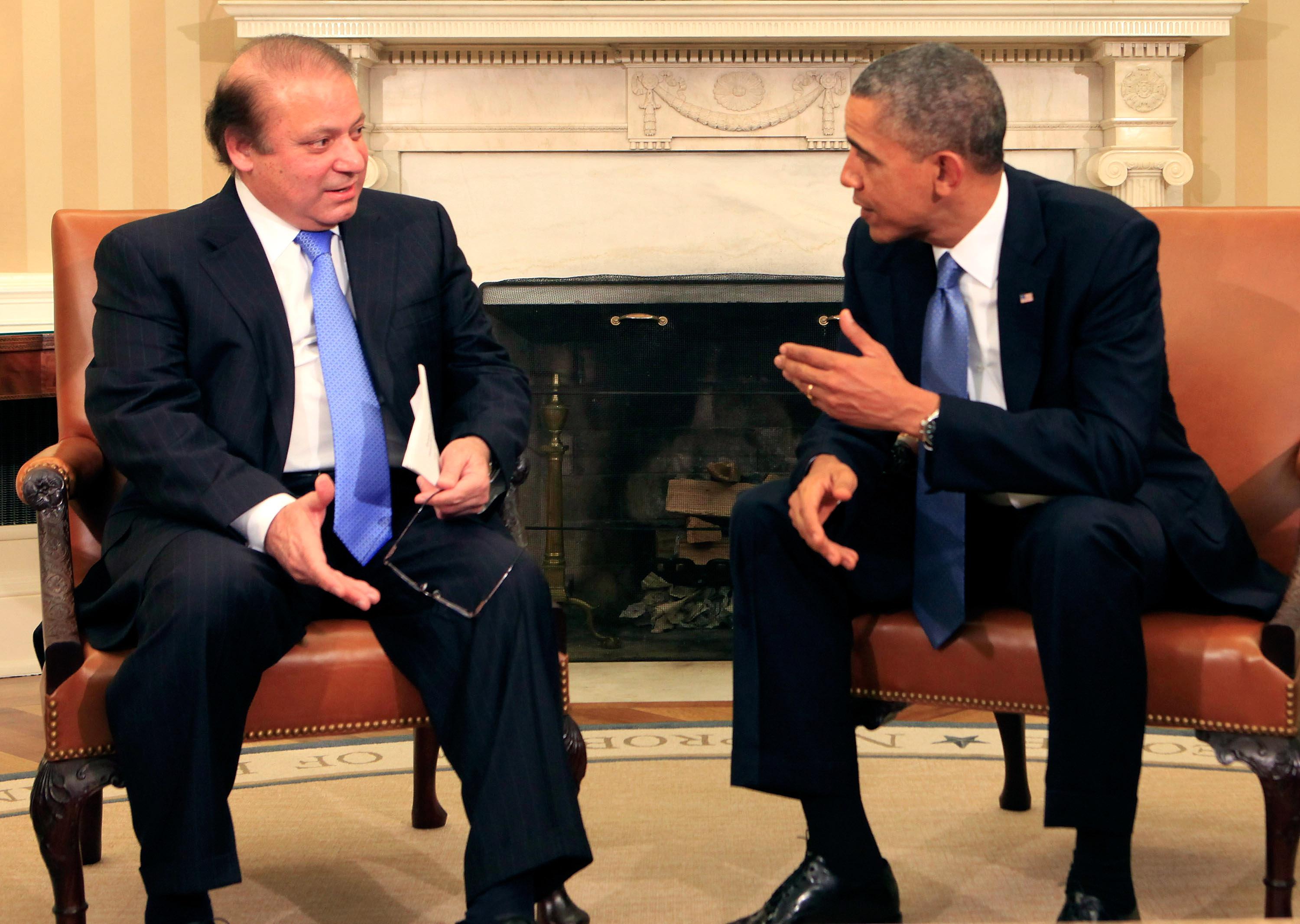UPDATE: Hours after President Obama and Pakistan Prime Minister Nawaz Sharif met in the Oval Office, during which Sharif says he told Obama drone strikes in Pakistan must cease, the Washington Post reports that Pakistani officials have taken a far different stance behind closed doors. “Despite repeatedly denouncing the CIA’s drone campaign,” the Post reports,” top officials in Pakistan’s government have for years secretly endorsed the program and routinely received classified briefings on strikes and casualty counts, according to top-secret CIA documents and Pakistani diplomatic memos obtained by The Washington Post.”
Here’s more from the Washington Post:
[T]he files expose the explicit nature of a secret arrangement struck between the two countries at a time when neither was willing to publicly acknowledge the existence of the CIA drone program.
…
Several documents refer to a direct Pakistani role in the selection of targets. A 2010 entry, for example, describes hitting a location “at the request of your government.” Another from that same year refers to a “network of locations associated with a joint CIA-ISI targeting effort.”
Original Post. Oct. 23, 6:42 p.m.: During a meeting with President Obama on Wednesday, Pakistani Prime Minister Nawaz Sharif told Obama that American drone strikes in Pakistan needed to stop. Sharif told reporters following the Oval Office meeting: “I also brought up the issue of drones in our meeting, emphasizing the need to end … such strikes,” Reuters reports.
“The use of drones is not only a violation of our territorial integrity but they are also detrimental to our efforts to eliminate terrorism from our country,” Sharif said, according to the BBC. The Pakistani Prime Minster described the use of drones in Pakistan as a “major irritant” in his country’s relations with the U.S.
The meeting comes after a particularly frosty period in U.S.-Pakistan relations, but appears to be part of a larger thaw as the U.S. has quietly restarted security assistance to Pakistan that had been stopped following the raid that killed Osama Bin Laden in 2011. Obama has requested $1.62 billion in assistance to Pakistan from Congress for this fiscal year, including $857 million in civilian aid and $305 in security, according to Reuters.
